The Old Broke Rancher Learns the Difference Between a Mouse and a Moose

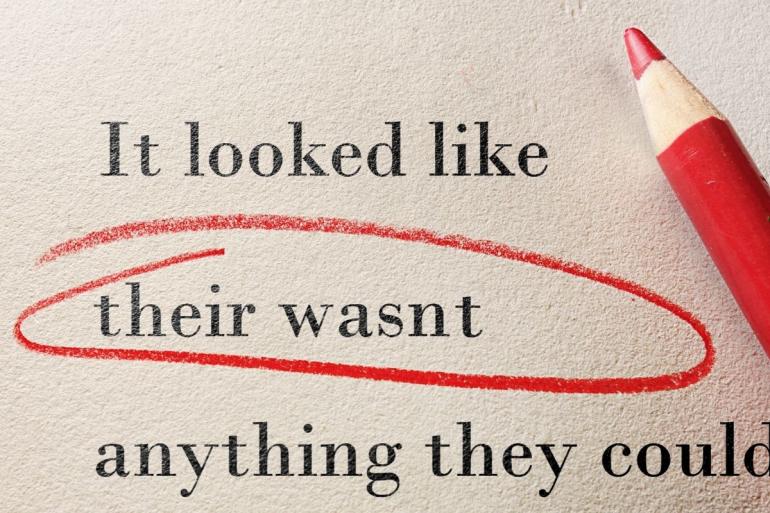
Suppose you'd have told me years ago that someday someone - anyone! - would enjoy reading something that I'd written; I'd have worried that I was talking to a lunatic.
Me? A writer? You must have me mixed up with someone else. Could you perhaps be thinking of Mark Twain?
Sure, I always liked to tell a story. Unfortunately for me, I like telling stories better even than I like telling the truth.
I like telling them so much that those that know me best, and have to spend day after day hearing me tell them over and over, are awful tired of hearing them. Certainly, I don't want to bore my audience - my sons, my luckless coworkers, my poor, poor wife - so I'm willing to make a compromise for them: upon subsequent tellings, I'll add a few bald-faced lies to make it more exciting.
But a writer? No, no. All chance of that went out the window in 1959, with a short story I wrote for Sister Gretchen, one of a cabal of fearsome nuns that ran my Catholic School.
In third grade, Sister Gretchen told us to write a 1200 word long story inspired by a work of classic American literature. There were a handful of Huck Finn-esque tales of floating down the great Mississippi, a headless horseman or two to go with the three or four Poe pastiches. In one questionable case, a girl wrote a story inspired by Peyton Place that proved to be a minor scandal because it apparently contained a lurid description of a closed-mouth kiss. But yours truly was and is a Jack London kind of guy, and I set out to write the best damn western adventure survival story since Call of the Wild and White Fang.

My protagonist was an Indian dog imaginatively (and not-at-all derivatively) named Red Fang who is separated from his master and his tribe during a buffalo hunt , is trampled unconscious by a bull, and is then left behind to find his way back to the tribe, which is relocating to their winter camp on the other side of the mountains. I wanted Red Fang to get in all sorts of adventures on his way back. Bloody, exciting adventures that were undeniably serious and grown-up.
So, on a Sunday afternoon that I have rather spent running around outside, I sat down at my Mom and Dad's ancient Underwood typewriter, which worked well enough as long as you didn't need the letter T. I also poured myself a tumbler of milk because I had heard writers drank scotch and milk, about which I was partially correct. Obviously, I couldn't have scotch with mine, so I had a little malted chocolate instead.
I hate to sound like an old man, but I am one, so I'll indulge myself: you kids have it so easy these days. You just lightly wave your hands over your keyboards in a dizzying tippity-tap rhythm and words fill the screen. But these typewriters were great beasts, probably engineered by the same madmen who designed bear traps. You didn't just press the key. You had to punch it, stab it, really, to get the typebars, which weighed about eleven pounds each if my memory serves, anywhere near the paper. Sure, everyone can type 120 words per minute now, but there was a reason why secretaries and typists were asked their words per minute back then. Typing should have been an Olympic sport at which stocky, Eastern bloc types in heather grey sweatsuits would have excelled.
Plus, if you made even one typo, you had to then open up the little bottle of correction fluid, which was a very recent invention, and somehow cover up your mistake and get the lid back on the bottle before you passed out from the smell.
Not only that, but now your computer tells you how to spell everything, but back then, you actually had to know how to spell, which I didn't.
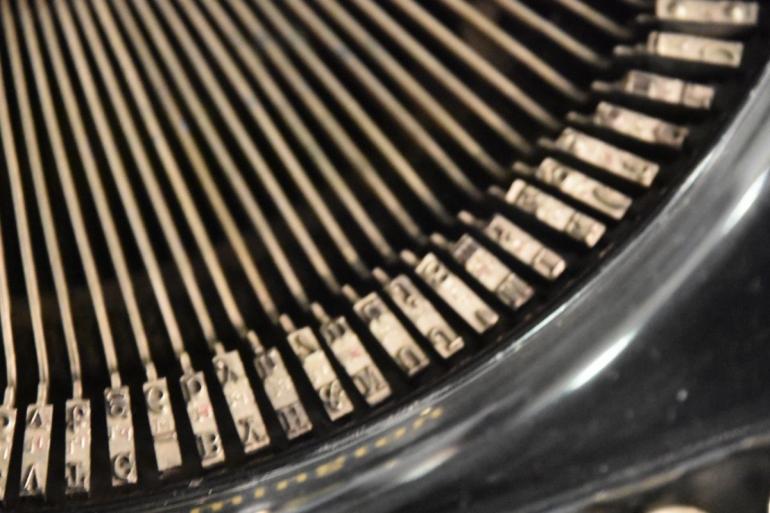
A simple and (I think) understandable spelling error ruined my story of dramatic peril when I got to one of the climactic scenes of my story wherein Red Fang has to face off against a gigantic animal opponent before he can reach his friends and family.
"Red Fang the tough indian dog looked out across the snowy waste and thought, 'I am almost there! All I have to do is get across this snowy waste, and I will be home, laying by the fire, chewing on a big chewy bison bone and having my ears scratched!'
But then, Red Fang heard something scary and loud and turned around to see a big bull mouse bearing down on him with the fury of a party on the warpath!!! The mouse swung his great big antlers around, and he almost hit Red Fang!
Red Fang saw that his only chance was to run out across the ice, where his paws might get him better purchase than the mouse's long gangly legs.
The mouse bellowed as it chased Red Fang, and Red Fang could feel the mouse's hot breath on his haunches. Finally, Red Fang saw a big cave at the edge of the ice and ran for it, thinking maybe he could reach it before the mouse. He got closer and closer, and then Red Fang was there in the cave! But he heard something growl, and then he knew there was something else in the cave too.
It was a BARE!'
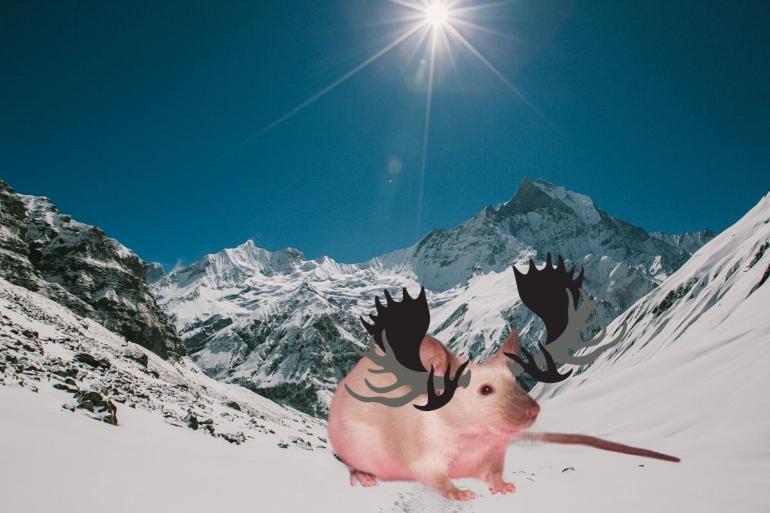
I guess I was lucky because if I had added another 's' it would have been the story of the Red Fang versus a french dessert.
After that, the bare/bear ate Red Fang and the mouse/moose. I couldn't help but notice that most of the great works of American literature ended unhappily, so I thought that a sad conclusion would make it more meaningful and perhaps be the detail that took it from a great story to a true American classic.
Sister Gretchen read every story out loud, and such was my luck that she was laughing too hard to reach the end of the story. She had to lean against the chalkboard, one hand over her mouth, and just give in to her sobbing hilarity. Her spirit of joyful mirth had started with the first 'mouse' and become impossible to manage by the first 'bare.'
Let's just say having a teacher break out in paroxysms, not just a chuckle, but a big belly laugh, over your sincere attempt at writing can take the wind out of the sails of any budding author's boat. I bet a lot of you have a similar story, even if the details are different.
I'm sure those teachers meant well by trying to get me to figure out where to put the commas, trying to get me to understand the difference between your and you're, to write out all the conjugations, to figure out which side of the quotation marks to put the period.
But I wish I could go back in time and tell them, "Hey, don't worry so much, will you? There'll be computers to do all that someday! Oh, and invest in Microsoft!"
In other words, until recently, I've contented myself instead with boring patient loved ones for the last 60 years or so. They've grown very tired of hearing them over that time. Now at the first sign that I'm about to embark on a story, indeed, as soon as I've uttered the phrase "I ever tell you about the time," their eyes glaze over, and they become as vacant zombies.
I guess what I'm saying is this: thanks for reading, whoever you are. I'm very glad to have your attention, and you're very kind and generous to give it.
Or is that you're attention...?

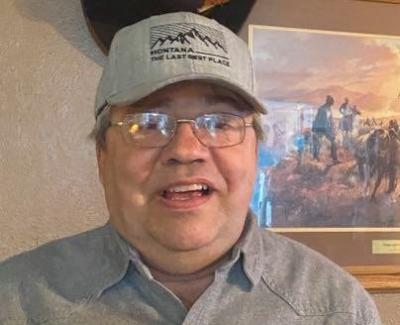
Gary Shelton was born in Lewistown in 1951 and has been a rancher, a railroader, a biker, a teacher, a hippie, and a cowboy. Now he's trying his hand at writing in the earnest hope that he'll make enough at it to make a downpayment on an RV. Hell, scratch that. Enough to buy the whole RV. He can be reached at [email protected] for complaints, criticisms, and recriminations. Compliments can be sent to the same place, but we request you don't send them - it'll make his head big.








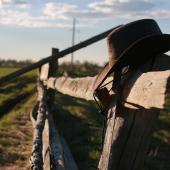
Your stories are so enjoyable. I look forward to each Distinctly Montana edition
.in hopes that you have another story in it. Thank you for sharing your great sense of humor.
I grew up in Billings in the last century.
P.A.Davis
- Reply
Permalink